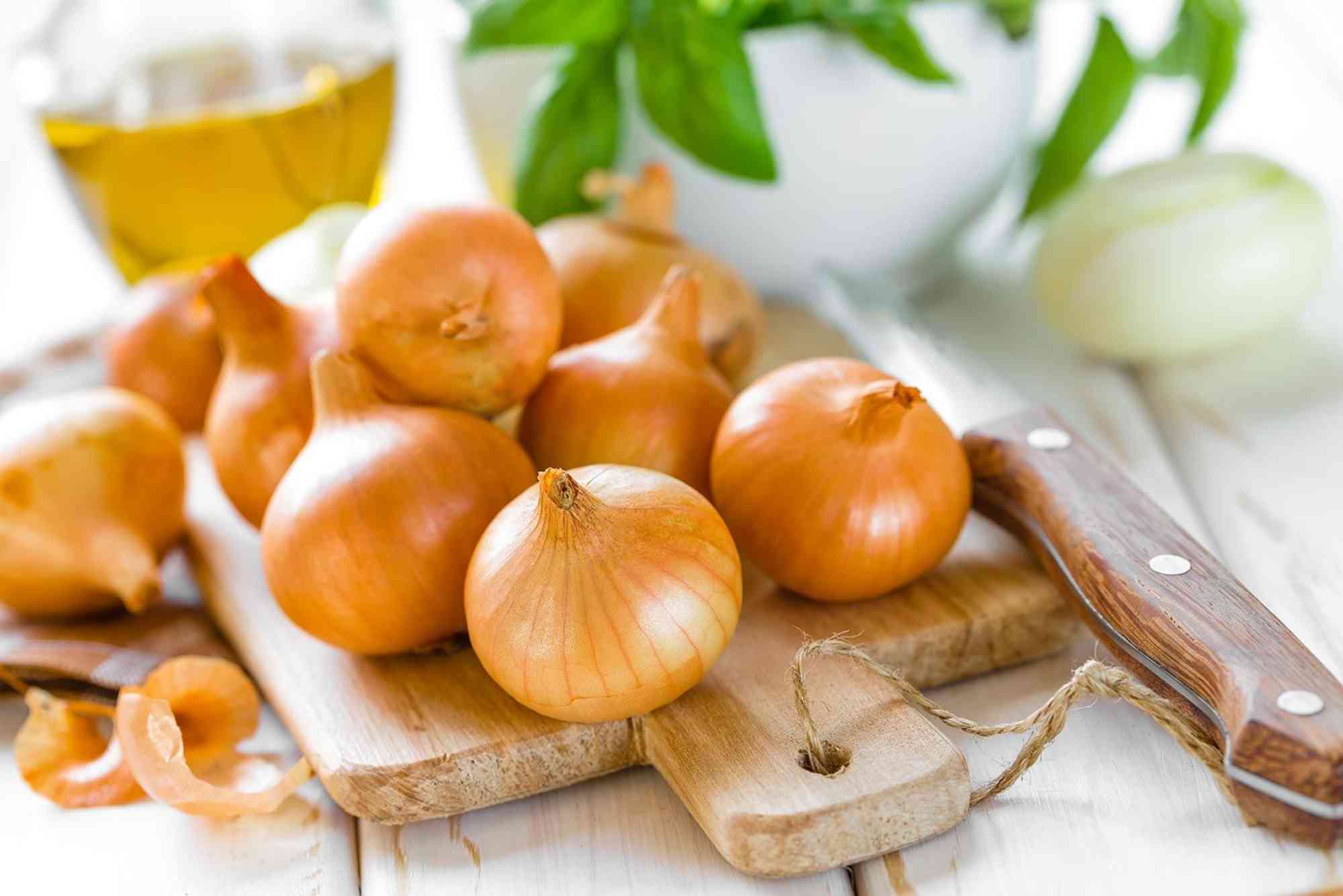Yellow onions are more than just a flavorful kitchen staple — they’re a powerhouse of health benefits waiting to be explored. Found in almost every home kitchen, they’re usually chopped and cooked without much thought. But behind their pungent bite and golden skin lies a wide range of nutrients and healing properties. From boosting heart health to supporting the immune system, yellow onion health benefits are extensive, surprising, and supported by science.
In this article, we’ll break down exactly why yellow onions deserve a place on your plate — not just for taste, but for your well-being.
Why Yellow Onions Stand Out
When comparing types of onions — white, red, and yellow — the yellow variety stands out for both its flavor depth and nutrient density.
The Nutrient Profile
Yellow onions are rich in vitamins and antioxidants. They contain vitamin C, vitamin B6, folate, potassium, and manganese. Most notably, they’re high in quercetin, a plant flavonoid known for its anti-inflammatory properties.
Cooking Enhances Their Goodness
Unlike some vegetables that lose nutrients when cooked, yellow onions often become more beneficial. Heat breaks down their sulfur compounds in a way that enhances absorption and may even increase their antioxidant effects.
The Top Yellow Onion Health Benefits
Understanding yellow onion health benefits can encourage you to use them more purposefully in your diet. Let’s take a look at what makes them so beneficial for health.
Supports Heart Health
One of the most studied benefits of yellow onions is their positive impact on the cardiovascular system.
How it Works
Yellow onions contain flavonoids and sulfur compounds that can reduce blood pressure and cholesterol. These compounds help improve blood vessel function and lower the risk of plaque buildup, reducing the chance of heart disease.
Research suggests that quercetin, specifically, may help regulate systolic blood pressure, making onions especially helpful for those with hypertension.
Strengthens the Immune System
Yellow onions are loaded with antioxidants — especially vitamin C — which help fight infections and reduce inflammation.
Daily Defense
Regular consumption of yellow onions supports the immune system’s ability to combat viruses, bacteria, and environmental stressors. Combined with garlic or ginger, they become even more potent.
Promotes Digestive Health
Your gut relies on fiber and prebiotics, and yellow onions provide both.
Feeding Good Bacteria
They contain inulin, a type of prebiotic fiber that feeds the beneficial bacteria in your digestive tract. This contributes to better digestion, improved nutrient absorption, and a stronger immune system overall.
Regulates Blood Sugar Levels
Yellow onions have been shown to help control blood sugar — good news for people with diabetes or insulin resistance.
Natural Blood Sugar Support
Compounds in onions can increase insulin sensitivity, helping the body process sugar more effectively. Their low glycemic index also means they won’t cause a spike in blood sugar after meals.
Anti-Inflammatory and Antioxidant Effects
Chronic inflammation is linked to many diseases, from arthritis to cancer. Yellow onions are full of antioxidants that combat oxidative stress.
Quercetin at Work
Quercetin not only reduces inflammation but also scavenges free radicals in the body. This reduces cell damage and may lower the risk of chronic disease development over time.
How to Include More Yellow Onions in Your Diet
The easiest way to benefit from yellow onion health benefits is to use them regularly in your meals. The good news? They’re incredibly versatile.
Everyday Cooking Ideas
- Add sautéed onions to soups, stews, and stir-fries
- Roast them with other vegetables for a sweet, caramelized flavor
- Use them as a base for sauces and curries
- Include raw slices in salads or sandwiches
Cooking slowly on low heat can preserve the nutritional benefits while enhancing their natural sweetness.
Cautions and Considerations
Despite their benefits, some people may need to watch their onion intake.
Digestive Sensitivity
People with IBS or FODMAP sensitivity may experience bloating or discomfort after consuming onions. If this applies to you, try small quantities or consult a dietitian.
Allergies
Onion allergies are rare but possible. Symptoms may include skin irritation, runny nose, or asthma-like symptoms.
Real-Life Impact: What Studies Say
Scientific research continues to support the health benefits of yellow onions.
- A 2015 study in Nutrition Journal showed that quercetin supplementation lowered blood pressure in hypertensive patients.
- Another study in Food & Function linked onion extracts to reduced inflammation markers in people with obesity.
- Animal studies suggest sulfur compounds in onions may even have anti-cancer properties.
These findings add weight to the growing belief that yellow onions are more than just a flavor enhancer — they’re functional food.
Yellow Onion vs. Other Onions: Which is Best?
While all onions offer some health perks, yellow onions shine due to their high antioxidant levels and culinary flexibility.
Why Choose Yellow?
They have a balanced sugar and sulfur content, making them both flavorful and health-promoting. Red onions are higher in anthocyanins, but yellow onions offer broader benefits, especially when cooked.
Don’t Underestimate the Power of Yellow Onions
Yellow onions are a humble kitchen staple with the power to transform your health. They support your heart, strengthen your immune system, regulate blood sugar, and offer potent antioxidants — all wrapped in a golden peel.
Start treating yellow onions as a health food, not just a seasoning. Your body will thank you.
Ready to take control of your health naturally?
Add more yellow onions to your daily meals and enjoy their big benefits, one dish at a time.
FAQs: Yellow Onion Health Benefits
Are yellow onions healthier than red onions?
Both are healthy, but yellow onions have more sulfur compounds and antioxidants when cooked. Red onions may have more benefits raw due to anthocyanins.
Can yellow onions help with inflammation?
Yes, their quercetin content is a powerful anti-inflammatory compound that helps reduce chronic inflammation in the body.
Is it better to eat yellow onions raw or cooked?
Both are beneficial. Raw onions retain more vitamin C, while cooking releases sulfur compounds and enhances other antioxidants.
How often should I eat yellow onions?
Including them 3–5 times a week in your meals can support long-term health benefits without overdoing it.
Do yellow onions have any side effects?
Some people may experience gas or bloating, especially those with sensitive digestion. Start with small amounts if you’re unsure.





